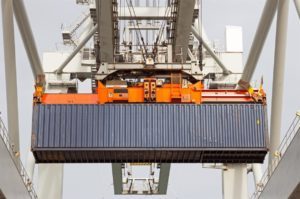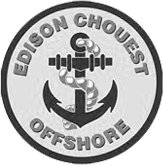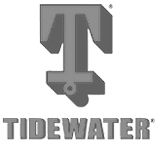Offshore Accidents
Over $1 Billion RECOVERED For Maritime Accident Victims
Most Common Maritime Injuries in the U.S.
If you’re on this website, then you probably don’t need to be told that maritime workers endure hard working conditions—it’s just a persistent fact of life for you, a loved one, a family member, or a friend. Serious injury and even death can easily result from a moment’s inattention.

For maritime personnel, hazards can come from virtually anywhere, from violent storms at sea, from malfunctioning equipment, from slippery floors, from unsecured objects that fall from above. For that reason, these workers are susceptible to a shockingly wide range of injuries.
What follows is an overview of the most common types of personal injuries experienced by maritime personnel while on the job.
Burns
Maritime vessels often carry a large amount of flammable material, including fuel, chemicals, and paper. When a fire breaks out, personnel in the area can have trouble getting clear of the danger in a confined space. If the fire sets off an explosion, workers can be caught by surprise by this additional complication.
The risk of fires, and subsequent injuries to the crew, is aggravated by negligence in equipment inspections and maintenance—an oversight that is tragically very common in this industry. This puts crew members in danger of sustaining severe burns if a fire occurs, and all it takes is one little spark for disaster to strike.
It’s worth pointing out that burns aren’t always the result of contact with flame. Certain types of corrosive chemicals generally used on seafaring vessels also cause serious injury when they come into contact with the skin.
Respiratory Issues
All those toxic chemicals can trigger health problems even if the worker keeps them from making contact with their skin. Many chemicals emit fumes that are by themselves hazardous. Inhaling these fumes may lead to a number of respiratory problems—some only temporary, but also some that can cause chronic issues.
Chemical pneumonitis, to mention one example, is a lung inflammation that can result from exposure to smoke, dust, chlorine gas, or other airborne irritants. The danger is significantly higher for workers who must perform their duties in confined areas where these fumes are present.
Back Injuries
This type of injury is quite common in many industries, but, among maritime workers, the risk is substantially higher than normal. No small number of back injuries in this field result from manually lifting heavy materials. Proper lifting techniques can sharply reduce the incidence of these injuries, but, when under pressure on the job, it can be easy for personnel to forget these considerations.
That kind of back injury is certainly not to be ignored, but the degree of harm tends to be considerably worse when it results from a trip and fall accident. Falls can be particularly difficult to avoid on a seafaring vessel, due to slippery floors, improperly secured equipment or freight, open hatches, and other perils that are much less common in conventional work environments.
Back injuries can mean major mobility issues but even relatively minor cases might impede the employee’s ability to perform their usual duties, particularly if their job involves lifting heavy objects.
Head and Brain Injuries
It goes without saying that injuries to the head are hardly a trivial matter. Anyone who follows professional football is aware of the ongoing controversy about concussions and their long-term effects. Unfortunately, this is another danger to which maritime workers are routinely subjected.
It’s not uncommon for maritime workers to toil away in environments with heavy chains and other objects swinging dangerously overhead. Similar threats are posed by unsecured objects that fall from elevated platforms. A simple slip-and-fall incident can also result in a head injury.
Neck and Spinal Injuries
An injury to the neck and/or spine is another potentially serious issue, as it can hinder an individual’s ability to perform simple everyday tasks. Even sitting in a chair can be an ordeal for someone with a spinal cord injury. In severe cases, partial or complete paralysis may stem from an injury to this area of the body.
The causes of neck and spinal injuries are similar to the causes of other blunt-force trauma cases, with slip-and-fall accidents—that ever-present maritime hazard—accounting for many of these instances.
Amputations
Sometimes a maritime worker will sustain an injury so severe that it becomes necessary to amputate an entire limb, such as a finger, a hand, an arm, a foot, or a leg. When this happens it’s not possible for the individual to return to their normal pre-accident state. Often, the victim will have to use a specially made prosthetic part that simply cannot provide the full functionality of a natural appendage.
It’s also common for the distress associated with the accident to cause long-term psychological problems for the sufferer, including Post Traumatic Stress Disorder (PTSD).
On a maritime vessel, incidents that cause amputations, or require subsequent medical amputation, are often due to a mishap with a conveyor belt or a trawl winch, either of which is capable of catching and mangling a limb. Sometimes crush injuries—e.g., the worker gets their hand trapped between two pieces of moving equipment—lead to amputation as well.
Asphyxiation
Also known as asphyxia, this is essentially the inability to breathe properly, usually due to external factors. Obviously, this can be fatal, and, on a seaborne ship, there are a number of threats that can lead to it. Workers in enclosed spaces may be suddenly overcome by toxic fumes. Personnel working with trawl winches can get tangled up in the equipment, cutting off their air supply. These are just a couple of scenarios that can asphyxiate a maritime employee.
Hypothermia and Frostbite
On a maritime ship, harsh weather conditions can easily send a worker overboard with fatal consequences. Many people in this situation drown before they can be rescued, but that’s not the only danger involved in these circumstances. Hypothermia—substantially decreased body temperature—can kill as well. Even if the individual is rescued from the waters, there still may be serious complications relating to hypothermia, such as frostbite, especially if the victim suffers from a major pre-existing health issue.
Maritime workers are vulnerable to frostbite even if they manage to stay safely aboard the ship. Many fishing vessels carry plate freezers, which are used to freeze fish in a rapid manner to prepare them for future processing. Workers in close proximity to these freezers could be easily harmed by the extremely cold temperatures maintained by these units.
Compartment Syndrome
This oddly named medical condition refers to the excessive build-up of pressure in one or more of the body’s muscle areas (called compartments). It most frequently develops in a leg or an arm. Due to the intense pressure, blood flow is significantly restricted in the body part, sometimes causing irreparable damage to the muscle and permanent disability.
This syndrome comes in two primary forms: acute and chronic. Acute compartment syndrome often results from blunt-force trauma, such as a crushed limb; its successful treatment requires prompt medical attention. Chronic compartment syndrome occurs due to repetitive movements, which is why it is commonly associated with intense exercise routines. This leads to persistent pain in the affected area.
Pleural Disorders
Exposure to harmful chemicals on a ship sometimes leads to abnormalities with a person’s pleura, the thin tissue surrounding the lungs. The inflammation of this tissue is known as pleurisy, which often makes itself felt with a sharp pain in the chest. In many cases, it is necessary to relieve the condition through surgery, without which the lungs may eventually collapse.
If you or a loved one has been injured in conjunction with duties as a maritime worker, then you should be aware that there are legal solutions available. Contact our team for a free consultation.
Companies We’ve Taken On And Won
Featured In:
News Outlets and Professional Awards

Free Case Evaluation
No Obligation, In-Depth Case Review












